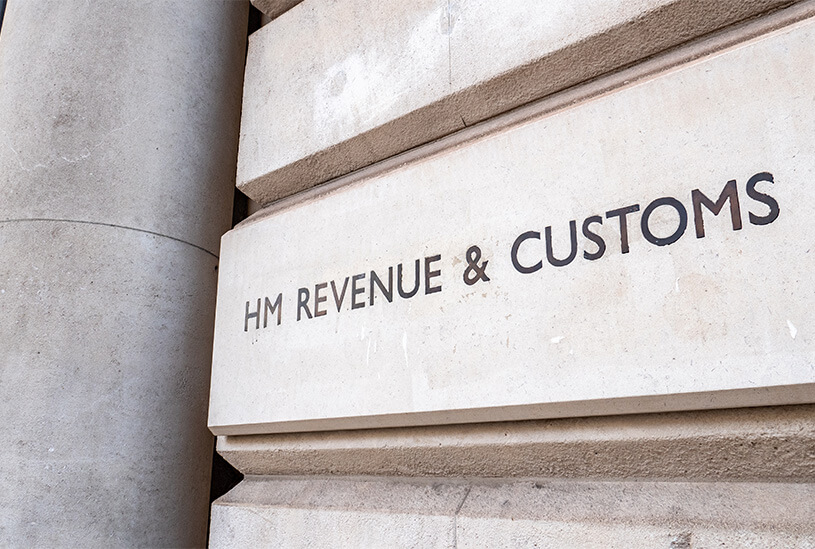Employers’ liability insurance
Join nearly 1 million customers like you – we offer public liability cover from £4.74*
- UK-based expert support, online and on the phone
- Get covered and all your documents on the same day
- Get tailored employers’ liability insurance quotes in less than 7 minutes
10% of customers pay the equivalent of £4.74 a month*

Compare quotes from leading brands






Rated 4.8/5
Based on 39,800 reviews
Claims paid in 24 hours
For 80% of settled claims
What is employers’ liability insurance?
Employers’ liability insurance is a legal requirement for most UK employers, under the Employers Liability Act 1969. It’s designed to protect you and your employees (including those who no longer work for you) if they’re injured or become unwell as a result of working for you, covering the associated legal and compensation costs, and other damages.
With Simply Business, you can buy employers’ liability insurance as part of a tailored policy, alongside public liability insurance, plus any additional covers you may need.
- employers’ liability insurance, UK-based claims and customer service team
- add it onto a tailored policy, alongside public liability insurance
- rated 4.8/5 based on 39K+ public liability customer reviews
Employers’ liability insurance – what’s covered?
Employers’ liability insurance (also known as EL insurance) can protect you against the cost of compensation claims raised by employees, if they’re injured or get sick because of your business. It’s usually a legal requirement for businesses that employ one or more people, and you risk £2,500 a day in fines for each employee not properly covered. It also works to cover damage or injuries caused to a third party, like a passer-by or client, by your employees.
Employee injury or illness
You might claim for this if your employee accidentally injures themselves, while working for you.
What does this cover?
- accidental employee injuries or illness, which come as a direct result from working for you
- temporary employees, as well as apprentices, contractors, and casual workers
When would I need to make a claim?
for example, one of your employees develops musculoskeletal problems because of working for you, and raises a claim
This content has been created for general information purposes. Make sure you have the right level of business insurance by checking your policy documentation for details. Read our full Terms and Conditions
Why is employers’ liability insurance important?
Employers’ liability insurance can protect you against compensation claims for:
- employee illness or injury caused by working for you
- medical bills and legal fees due to employee illness or injury
You’re required by law to have employers’ liability cover in place if you have employees. If you don’t, you could face a hefty fine of £2,500 per day, per employee, for each day that you’re not covered.
Public and employers’ liability insurance : what’s the difference
Employers’ liability insurance can cover your business against legal costs and compensation claims raised by anyone you’re responsible for, such as employees, volunteers, and trainees. Public liability insurance, on the other hand, can cover your business against claims from third parties, such as customers, clients. and members of the general public. The other key difference is that employers’ liability cover is a legal requirement for all businesses with employees – while public liability insurance is not.
Employers’ liability insurance cost
The cost of your employers’ liability insurance depends on several factors, including your business type and number of employees. Businesses that are perceived as riskier are likely to pay higher premiums.
Claims can be made long after someone has stopped working for you, as symptoms can sometimes take a while to manifest. If your business is found liable, you can be ordered to pay compensation costs, which can take into account things like loss of income and medical expenses. Your employers’ liability insurance can cover these costs, up to the limit of your policy.
Find out how much you’ll pay by comparing prices from a range of trusted insurers. You choose what goes into your policy, so you only pay for what you need.
Prices start from £4.74 per month
Get your quotes in 7 minutes – prices are guaranteed for 30 days.
Get your tailored quotes in 7 minutes
The price is for up to £2 million of public liability insurance – 10% of customers paid £56.82 or less annually between 1st Jan – 31st May 2024. Equivalent to £4.74 a month (and excludes the extra costs for paying monthly). 76% of customers have a £1 million limit and 24% £2 million. If you complete a quote, more types of cover will be available. These all have additional costs.
Employers’ liability insurance quotes (example, real prices)

£55.03 /month
£550.29 /year
A small painting and decorating company who occasionally use casual workers, as well as permanent employees
- 5+ years’ experience
- Limited company
- 3 employees
- Based in Sunderland
Public liability
£2,000,000
Employers’ liability
£10,000,000
Tools
£4,000

£81.95 /month
£819.45 /year
A large high street-based takeaway which uses a fryer (serviced annually)
- 1-2 years’ experience
- Sole trader
- 2 employees
- Based in Leicester
Public liability
£2,000,000
Employers’ liability
£10,000,000
Stock
£5,000
How we work out example quotes: These examples are real quotes from our online system (created 27/09/2024). They’re based on a range of factors, like employees and location. Your own quote will be based on what you tell us about your business. Prices may go up or down from day to day, so the prices you’re quoted may differ to the ones you see here.
How it works
Pick what goes into your policy
Only pay for what you need
Get prices from a range of insurers
Choose the best fit for you
Buy online in minutes
Get your documents the same day
Direct to
insurer
Highstreet
broker
Compare policies from a range of trusted insurers
Buy online or over the phone in minutes
Does employers liability insurance cover my work?
Make sure you’re picking the right cover to protect your business properly. Some examples of trades we cover include:
- Builders insurance
- Catering insurance
- Cleaning insurance
- Contractor insurance
- Factory insurance
- Hairdressing insurance
- Home baking insurance
- Manufacturing insurance
- Online retailer insurance
- Pub insurance
- Public liability insurance for security guards
- Restaurant insurance
- Roofing insurance
- Takeaway insurance
- Warehouse insurance
- Wholesaler insurance
Is your profession not listed? When you run a quote you can select your trade from over 1,000 options.
Talk to an expert
Our team of UK-based insurance experts are here to help, Mon 09.00am – 05.30pm, Tues 09.00am – 05.30pm, Weds 09.00am – 05.30pm, Thurs 09.30am – 05.30pm, Fri 09.00am – 05.30pm, Sat 09.00am – 02.00pm

Call our team
How do claims work?
Unlike price comparison websites, we take the hassle out of claims for you. We know how important it is to get your business back on track quickly – and with a minimum of fuss. That’s why you get access to your dedicated claims any time, day or night. Call them on 0333 207 0560 or claim online. They’ll do their best to be fair and supportive.
£51 million in claims paid out in 2023
83% of claims were settled in 2023.
The figure above is rounded across our range of products. “Settled” covers paid, declined or withdrawn. Our claims process may vary for different products and operates on a ‘claim by claim’ basis. Our specialist partner Sedgwick will pay the claims on behalf of the insurer. Reviewed on 24/04/2024.
Example employers’ liability claims
Having employers’ liability insurance through Simply Business has saved UK businesses thousands of pounds when the unexpected happened.
James saved more than £15,000
James (not his real name) was fitting some floors with his employee, Ismail. During the job, Ismail walked across a loose floorboard and fell, causing a knee injury. The employers’ liability insurance added to his policy covered Ismail’s medical costs.
Insurance payout
£15,152
Covering the cost of employee injury
Chosen by nearly 1 million small businesses and landlords
We started out as a team of five back in 2005. We’ve grown since then, with nearly 1 million customers across 1,500 trades now trusting us to provide their business insurance.
Employers’ liability insurance FAQs
Whether you’re new to buying business insurance or you’ve been trading for a while, here are the answers to some commonly asked questions about employers’ liability insurance. You can also check out our business insurance FAQs.
If you have employees, you’ll usually need to have employers’ liability insurance in place – it’s a legal requirement.
You should also have cover in place if you have labour-only subcontractors (LOSCs) working for you. Our Knowledge centre has more information on subcontractors and employers’ liability insurance. If you have employees and you’re not covered, you could face a hefty fine of £2,500 a day, per employee, for each day that you don’t have cover in place.
There’s one exception though – if you have a family business that isn’t incorporated as a limited company, you aren’t legally required to have employers’ liability insurance.
A “family business” is one where all your employees are closely related to you (as a spouse, civil partner, sibling, child, parent, grandparent, grandchild, step-parent, stepchild, or half-sibling).
So if you run an unincorporated family business and you choose not to get employers’ liability insurance, it’s important to know that your public liability insurance wouldn’t cover you against damage or injury caused by your team.
The price of your employers’ liability insurance depends on the work that your business does and the risks your employees face. The cost can also depend on the cover level you choose, but in practice most providers offer a standard amount of £10 million.
As with other types of insurance, your insurer calculates your premium based on the likelihood that you’ll make a claim and the cost of any possible claim. This means that if your business is perceived as risky, it’s possible that your insurance premium will be higher. For example if your employees work with hazardous materials like asbestos, or they work in dangerous environments like oil rigs, your insurance is likely to cost more.
You can decrease the chance of a claim and possibly lower the cost of your employers’ liability insurance by taking precautions to keep your staff safe, and ensuring that workers are properly trained and supervised and have the right tools and safetywear.
If you have employees – including some subcontractors – you’re required by law to have employers’ liability insurance. The only exception to this is if you’re running an unincorporated family business. If you are, then you aren’t legally required to have employers’ liability cover in place.
Employers’ liability cover protects you and your employees in case they become sick or injured as a result of working for you. If you’re not covered, you could be fined £2,500 per employee for each day that you don’t have cover in place.
Employers’ liability insurance must be bought alongside public liability insurance.
If you have people working for you, including bona fide subcontractors (BFSC), labour-only subcontractors (LOSC), part-timers, or full-time staff, employers’ liability insurance is required by law.
Read on for our simplified guide to the difference between labour-only subcontractors and bona fide subcontractors.
Read more about employers’ liability insurance as a legal requirement
Remember that the cost of your employers’ liability policy is likely to be a fraction of the cost of the penalty for failing to have the right cover. You can be fined up to £2,500 each day that you don’t have an employers’ liability policy in place if your business is legally required to have one.
You also need to display your employers’ liability certificate somewhere all your employees can see it, and you can be fined if you fail to do this. It’s ok to display it digitally, for example on your company’s intranet, as long as all your staff have access and you’ve told them where to find it.
Under the Employers’ Liability Act most businesses with one or more employees should have at least £5 million of cover and they must display their insurance certificate. There are some exemptions, however, including some family businesses, so check the government guidance if you’re not sure whether your business is included.
Employers’ liability insurance protects you against the cost of compensation claims that arise from employee illness or injury as a result of working for you.
For example, if one of your employees slips and breaks their wrist at your business premises, employers’ liability insurance can cover medical bills and legal fees that can arise from a claim against you.
Read more about what does employers’ liability insurance covers
While employers’ liability cover is a legal requirement for many businesses, there are some exceptions, including:
- businesses with only direct family members as employees (unless you’re a limited company)
- businesses with no employees – including limited companies with just a sole director and no employees
It’s important to note that your limited company must always have employers’ liability insurance in place if you have multiple directors. Limited companies will also need to have employers’ liability cover if you’ve employed family members to work for you.
If your business isn’t a limited company and you’ve employed family members, you should still consider investing in employers’ liability cover. While the chances of a family member taking out a claim against your business may be slim – you’ll still be liable if a family member takes you to court for an injury or illness that took place while working for you.
Yes. This includes temporary and part-time staff, apprentices and volunteers. You may not need to have cover in place for independent contractors and subcontractors – but it’s a good idea to speak to one of our insurance experts on 0333 0146 683 if you’re unsure.
Most employers’ liability policies will cover staff who work from home, but you should check the details of your policy to be on the safe side.
Yes, the legal required amount if £5m but all Simply Business customers receive 10m as standard
This will depend on the insurer you choose to go with. When you start a quote with us, make sure you tell us how many employees you’d like to cover – we’ll then match you to the insurers who are best suited to your business.
An excess is an amount you pay towards any claim you make on your insurance. For example, if your excess is £250 and you make a claim worth £1000, your payout will be a maximum of £750.
| Insurance cover | Lowest excess | Highest excess |
|---|---|---|
| Public liability | £100 | £2500 |
| Employers’ liability | No excess | No excess |
| Tools | £60 | £500 |
| Stock | £100 | £500 |
| Business and office equipment | £50 | £750 |
The figures above are for guidance only and any excess applying to your quote may differ. You’ll get a breakdown of the excesses for each quote when you compare with us.
This will depend on whether you have employers’ liability insurance in place. Public liability insurance is designed to protect your business against the consequences of legal action brought by members of the public for injuries or damage to their belongings. But when it comes to your employees causing injury or damage, this protection only activates if you also have employers’ liability insurance.
If you employ people, you’re required by law to have employers’ liability insurance.
There’s one exception here. Family businesses that aren’t incorporated as a limited company are not legally required to have employers’ liability insurance. The government defines a “family business” as one where all your employees are closely related to you (as a spouse, civil partner, sibling, child, parent, grandparent, grandchild, step-parent, stepchild or half-sibling). So if you run an unincorporated family business and you choose not to get employers’ liability insurance, it’s important to know that your public liability insurance wouldn’t cover you against damage or injury caused by your team.
We create this content for general information purposes and it should not be taken as advice. Always check policy documentation for details and seek professional advice. Read our full Terms and Conditions



